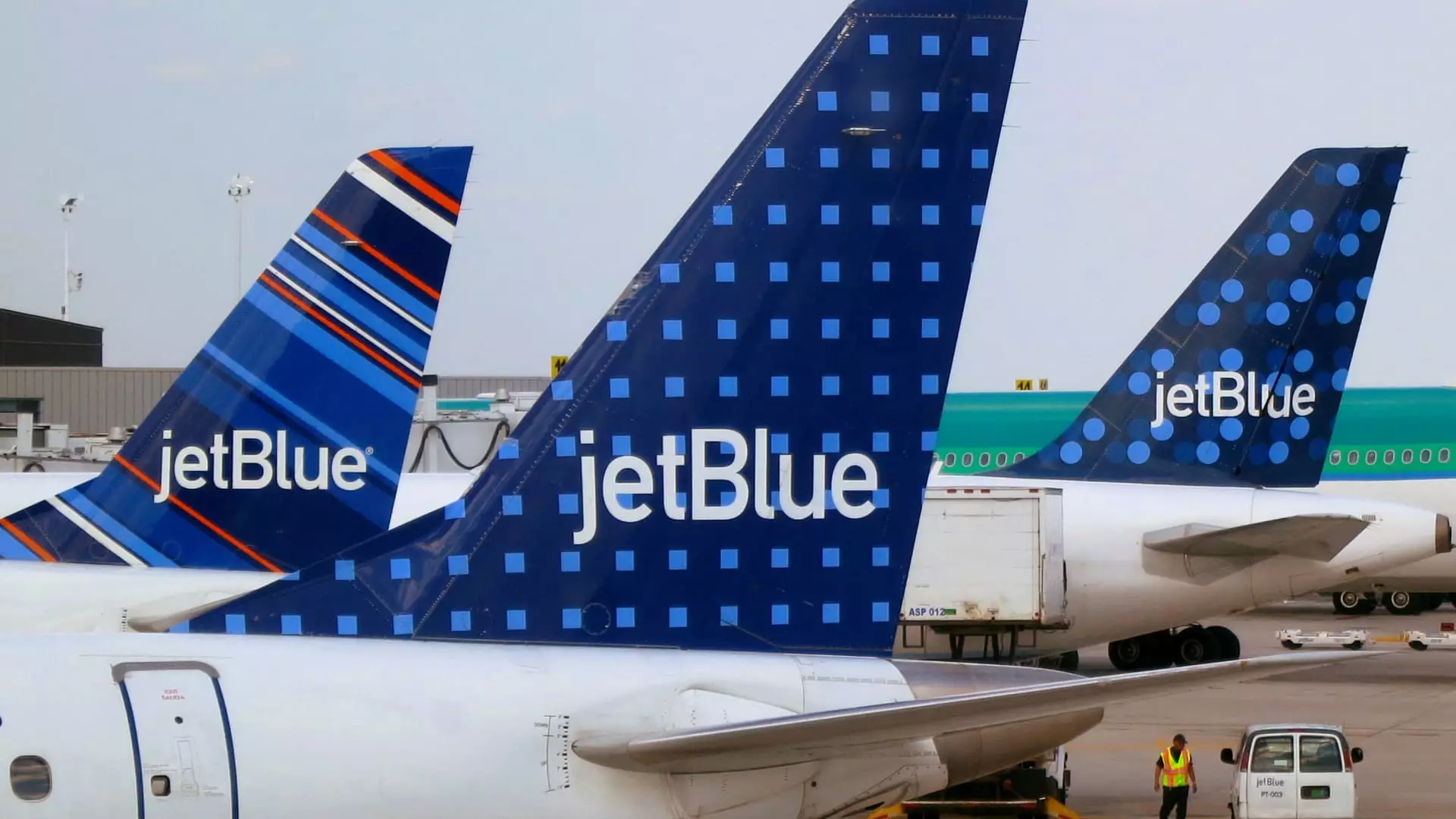In a significant move that may shape the landscape of the airline industry, the U.S. Department of Transportation (DOT) imposed a $2 million penalty on JetBlue Airways for what they termed “chronically delayed flights.” This ruling marks the first instance of its kind, signaling a potential pivot in regulatory oversight that seeks to hold airlines more accountable for their operational failures. The specific routes under scrutiny—four in total—suffered from severe disruptions, with delays of over 30 minutes occurring more than half the time. The routes in question connected key airports, including JetBlue’s main hub at John F. Kennedy International Airport with Raleigh-Durham International Airport, Fort Lauderdale, and Orlando.
The DOT defines a “chronically delayed flight” as one that operates at least ten times a month and is late by more than 30 minutes on over half of those occasions. Such criteria highlight a systemic problem that, when compounded, affects not just individual travelers but also the broader operational integrity of the airline. Notably, JetBlue was found to be the responsible party for more than 70% of the disruptions affecting these routes, calling into question the airline’s commitment to realistic scheduling practices.
Secretary of Transportation Pete Buttigieg emphasized the importance of this ruling, remarking that it serves as a wake-up call for the entire airline sector. The statement implies that while operational challenges may vary, adherence to a standard of reliability is non-negotiable. The potential for increased scrutiny from regulators following this incident could reshape how airlines approach their scheduling and operational practices moving forward.
JetBlue’s Response and the Bigger Picture
In the aftermath of the fine, JetBlue has indicated that the blame cannot rest solely on the airline itself. They argue that the federal government bears responsibility for the inefficiencies within the air traffic control system, which they claim contributes to widespread delays across the industry. This perspective aligns with sentiments expressed by other major carriers, such as Delta Air Lines and United Airlines, and points to an industry-wide acknowledgment of systemic issues beyond just airline scheduling.
JetBlue’s assertion pushes for significant investments in air traffic control technology and staffing improvements. The airline highlights that insufficient air traffic controller staffing levels lead to cascading delays that affect millions of air travelers annually. In doing so, they are attempting to shift the conversation from punitive measures to a more comprehensive discussion about the systemic challenges in air transportation.
The implications of this ruling extend beyond JetBlue. With the DOT indicating that they are currently investigating other airlines for similar scheduling irregularities, this could pave the way for heightened regulatory action across the industry. Airlines may now face increased pressure to critically assess their schedules and operational capabilities to avoid running afoul of new regulatory expectations.
Moreover, JetBlue’s ranking as one of the poorer performers in terms of on-time arrivals—coming in ninth out of ten U.S. airlines with just 71.3% of flights arriving punctually from January to September 2024—calls into question the broader operational framework the airline employs. The need for a robust approach to scheduling and improved performance metrics may emerge as a central challenge for JetBlue and others in the coming years.
Looking Ahead: The Path to Improved Reliability
As JetBlue navigates the fallout from this landmark decision, the overarching goal remains clear: to enhance reliability in air travel while addressing critical systemic deficiencies. By addressing both internal scheduling practices and external operational challenges, the airline has an opportunity to restore passenger confidence and align more closely with regulatory expectations.
Ultimately, this incident serves as a crucial reminder that accountability in the airline industry is multifaceted—encompassing not only airlines’ internal practices but also the infrastructure and regulatory frameworks that govern air travel. The potential response from other carriers, regulators, and the federal government could lead to meaningful changes, shaping an industry that embraces reliability and prioritizes passenger experience amid an ever-evolving transportation landscape.


Leave a Reply